China and Washington state have a long history of close trade relations, with representatives from both sides of the aisle focused on improving the situation for Washington’s interests. Despite the importance of two-way trade, there is bipartisan sentiment that China trade is fraught with increasing challenges. President Trump campaigned on a trade policy that would be tough on China. Under his administration, U.S.-China relations have been marked by a focus on trade and an increasing effort by the U.S. to leverage market access in exchange for economic and structural reforms. These changes include addressing the trade deficit (primarily in goods), changing China’s industrial policies aimed at obtaining U.S. technology and dealing with alleged unfair trade practices in steel and aluminum.

Washington state is among the largest exporting states, especially to China. Washington accounts for 5% of U.S. goods exports to the world, and 14% of U.S. exports to China. Over the past five years, Washington state overall exports have dropped slightly, but exports to China have grown by 3% (in 2017 $). Controlling for oilseeds exports, which are only consolidated in Washington state, China’s tariffs affect roughly $2.7 billion of Washington state exports in 2017. Export products included in China’s tariff list supported an estimated 28,700 jobs in Washington in 2017.

